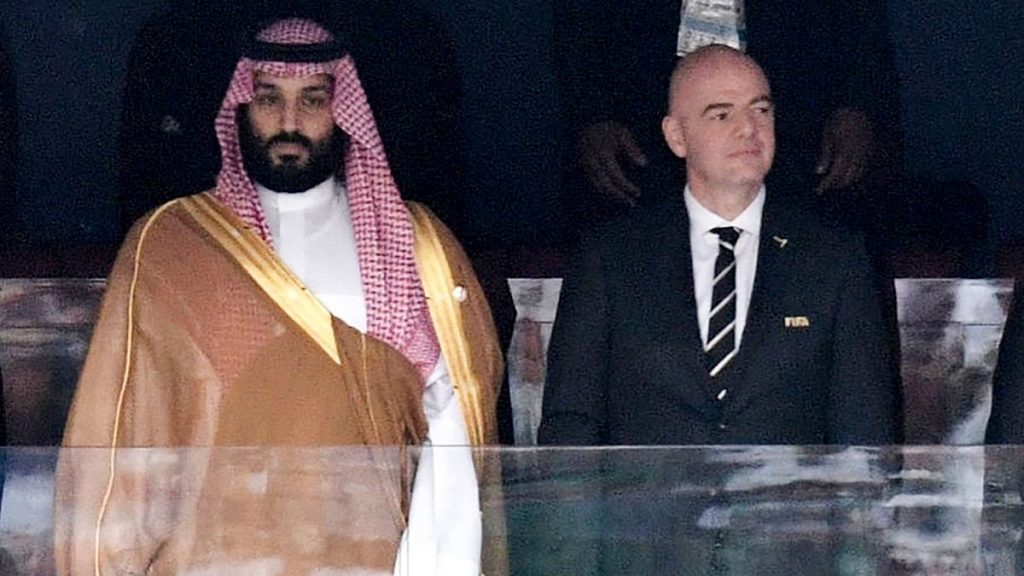The looming prospect of Saudi Arabia hosting the 2034 FIFA World Cup has ignited a critical discussion regarding the nation’s human rights record, particularly concerning its treatment of migrant workers. With the official confirmation anticipated imminently, UN High Commissioner for Human Rights, Volker Türk, has proactively addressed potential human rights violations during the tournament’s preparations. Recognizing the significant reliance on migrant labor for the ambitious infrastructure projects associated with the World Cup – including the construction of eight new stadiums and a substantial increase in hotel capacity – Türk emphasized the UN’s commitment to ensuring the respect of labor standards throughout the process. While FIFA has not formally engaged with the UN on this matter, Türk stressed the organization’s broader involvement in advocating for human rights within the context of major sporting events. This proactive stance reflects a growing awareness of the potential for such events to either exacerbate existing human rights issues or, conversely, to serve as a catalyst for positive change.
The concerns raised regarding Saudi Arabia’s labor practices resonate with the controversy surrounding the 2022 World Cup in Qatar. Allegations of widespread labor abuses during the Qatari tournament, including exploitative working conditions and inadequate safety measures, have cast a long shadow over the prospect of future World Cups in countries with questionable human rights records. The parallels between the two situations are striking, with both nations heavily reliant on a predominantly South Asian migrant workforce for the construction of massive infrastructure projects. The scrutiny surrounding Saudi Arabia’s potential hosting of the 2034 World Cup has intensified due to an ongoing investigation by the International Labour Organization (ILO) into the country’s labor practices, prompted by a formal complaint filed by trade unions. This investigation underscores the severity of the concerns surrounding worker protections in the kingdom and adds further weight to the calls for greater accountability.
Adding to the growing international pressure, two US senators have publicly urged FIFA to reconsider granting Saudi Arabia hosting rights, citing persistent human rights concerns. This political intervention highlights the increasing politicization of sporting events and the growing expectation that international organizations like FIFA should take a more proactive stance in addressing human rights issues within the countries they choose as hosts. Critics argue that FIFA has a responsibility to leverage its considerable influence to push for improvements in labor conditions and human rights protections in host countries, rather than simply awarding tournaments without addressing these fundamental concerns. The close relationship between FIFA President Gianni Infantino and Saudi Crown Prince Mohammed bin Salman has further fueled suspicions of a lack of impartiality in the decision-making process.
Türk’s statement underscores the UN’s willingness to provide guidance and advice to the organizers of the 2034 World Cup, regardless of the host country. He reiterated the importance of upholding international labor standards and ensuring the protection of all human rights throughout the preparation and execution of the tournament. This proactive approach by the UN signals a growing determination to hold host nations accountable for their human rights records and to prevent the exploitation of vulnerable workers. The UN’s offer of assistance also highlights the organization’s commitment to working collaboratively with stakeholders to promote positive change, even in challenging political contexts.
Despite Saudi Arabia’s bid document containing pledges to cooperate with the ILO and domestic agencies on labor issues, the noticeable exclusion of international labor unions and human rights groups raises serious concerns. These organizations play a crucial role in monitoring labor conditions and advocating for worker rights, and their exclusion suggests a lack of transparency and a potential unwillingness to engage with independent oversight. The restricted access these groups face within Saudi Arabia further complicates efforts to monitor the implementation of labor reforms and ensure meaningful protections for migrant workers. This lack of engagement with international watchdogs undermines the credibility of Saudi Arabia’s commitment to improving its labor practices and raises serious doubts about the efficacy of any proposed reforms.
The controversies surrounding the upcoming World Cup bid highlight the complex interplay between sports, politics, and human rights. While major sporting events like the World Cup can bring significant economic benefits and international prestige to host countries, they also expose pre-existing human rights challenges to global scrutiny. The pressure on FIFA to prioritize human rights in its decision-making processes is intensifying, as is the expectation that host countries demonstrate a genuine commitment to protecting the rights of all workers, including migrant laborers. The situation surrounding the 2034 World Cup bid underscores the urgent need for a more robust framework for ensuring that human rights are not sacrificed in the pursuit of sporting glory and economic gain. The international community must continue to hold both FIFA and prospective host countries accountable for their actions and demand concrete steps to safeguard the rights and well-being of all individuals involved in these mega-events.














